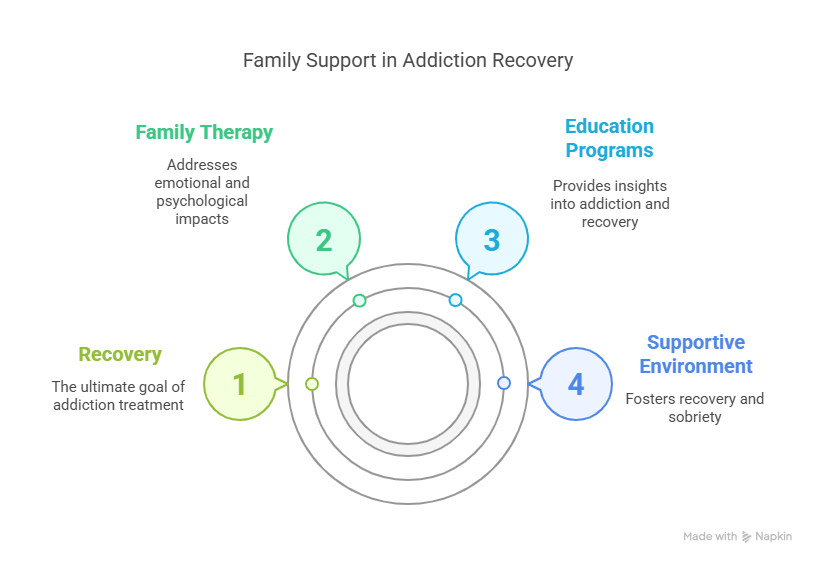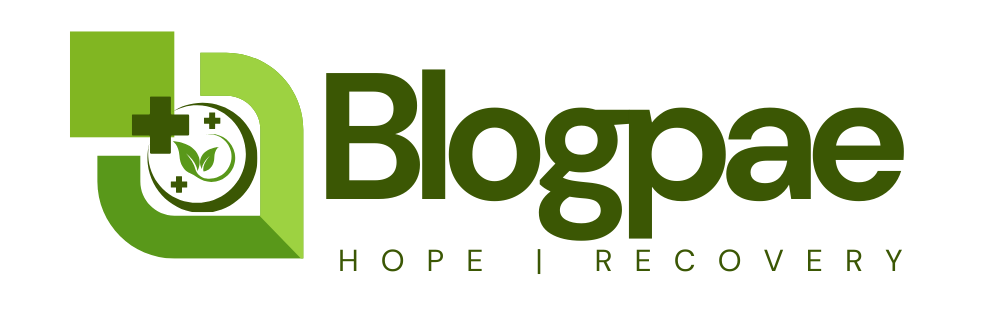When a loved one is struggling with fentanyl addiction, the journey towards recovery can be daunting. Fentanyl detox is a critical step in this process, and having a supportive environment can make a significant difference.
The road to recovery is not just about the individual; it’s also about the support system that surrounds them. Family members and loved ones play a crucial role in helping the individual navigate the challenges of detox and rehabilitation.
Understanding what to expect and how to provide the necessary support can be invaluable. This article aims to guide families through the process, offering insights into the importance of their role during this critical period.
Key Takeaways
- Understanding the fentanyl detox process
- The role of family in the recovery journey
- Creating a supportive environment
- Navigating the challenges of detox
- Resources for families and loved ones
Understanding Fentanyl Addiction and the Detox Process
Understanding the nature of fentanyl addiction is crucial for families navigating the detox process. Fentanyl is a synthetic opioid that is significantly more potent than heroin and morphine, making it highly addictive. The detox process involves managing withdrawal symptoms that can be severe and potentially life-threatening.
Families should be aware of the resources available to them, including medical professionals and support groups, to help cope with the challenges of fentanyl detox. As one expert notes, “The detox process is not just about managing physical symptoms but also about addressing the psychological aspects of addiction.”
“Detox is the first step towards recovery, but it’s not the only step.”
Why Fentanyl Withdrawal Is Particularly Challenging
Fentanyl withdrawal is particularly challenging due to the drug’s potency and the body’s dependence on it. Withdrawal symptoms can include intense cravings, anxiety, and severe physical discomfort. The withdrawal process can be so severe that medical supervision is often recommended.
Medical vs. At-Home Detox: Safety Considerations
When considering detox options, families must weigh the safety of medical detox versus at-home detox. Medical detox provides a supervised environment with access to medication and medical care, reducing the risk of complications. At-home detox, while more convenient, poses significant risks without medical supervision. Families should consider coping strategies and detox resources when making this decision.
The Importance of Family Support During Detox
Family support is a cornerstone in the journey of fentanyl detox, offering a lifeline to those struggling with addiction. The road to recovery is fraught with challenges, and having a supportive family can make a significant difference in the recovery process.
The emotional and psychological support provided by family members can help alleviate some of the pressures associated with detox, creating a more stable environment for recovery. This support is not just about being present; it’s about being actively involved in the recovery process.
How Your Presence Affects Recovery Outcomes
The presence of family members during detox can positively impact recovery outcomes by providing emotional stability and reassurance. Studies have shown that individuals with strong family support tend to have better recovery outcomes.
A supportive family environment can help reduce feelings of isolation and loneliness, which are common during the detox process. This support can be as simple as being present, listening, or helping with daily tasks.
Key Benefits of Family Presence:
- Emotional Support
- Reduced Feelings of Isolation
- Improved Recovery Outcomes
Preparing Yourself Emotionally for the Journey
Preparing oneself emotionally for the detox journey is crucial for family members. It’s essential to understand that the process can be challenging, not just for the individual undergoing detox but also for the family.
Educating oneself about the detox process, understanding the potential challenges, and seeking support for oneself can help family members navigate this journey more effectively.
“The love and support of family can be a powerful catalyst for recovery. By being informed, involved, and supportive, families can play a critical role in the recovery process.”
| Support Strategies | Description | Benefits |
|---|---|---|
| Emotional Support | Being present and available for the individual | Reduces feelings of loneliness |
| Education | Learning about the detox process and recovery | Empowers family members to provide effective support |
| Support Groups | Participating in family support groups | Provides a community and resources for families |
What to Expect Throughout the Fentanyl Detox Timeline
Being informed about the fentanyl detox timeline helps families and loved ones cope with the recovery process more effectively. The detox process involves various physical and psychological changes that can be challenging for both the individual undergoing detox and their family members. Support for loved ones in detox is crucial during this period.
Family therapy during detox can play a significant role in the recovery process by providing a supportive environment. Understanding the stages of detox and the symptoms associated with them can help families prepare and respond appropriately.
Physical and Psychological Withdrawal Symptoms
During fentanyl detox, individuals may experience a range of physical and psychological withdrawal symptoms. These can include severe cravings, anxiety, depression, and physical discomfort. The severity of these symptoms can vary depending on the individual’s level of addiction and overall health.
Behavioral Changes and How to Respond
Behavioral changes are common during the detox process. Individuals may become irritable, agitated, or withdrawn. It’s essential for families to remain patient and understanding, providing a supportive environment that encourages recovery.
| Symptom | Description | Supportive Action |
|---|---|---|
| Severe Cravings | Strong desire to use fentanyl | Encourage participation in therapy sessions |
| Anxiety and Depression | Mood swings and emotional distress | Provide emotional support and engage in relaxing activities together |
| Physical Discomfort | Physical pain and discomfort during withdrawal | Help manage pain with medication as prescribed by a healthcare provider |
Practical Ways to Support Your Loved One
156
Navigating Treatment Decisions Together
When a loved one is undergoing fentanyl detox, families are often faced with the daunting task of navigating treatment options, insurance coverage, and therapy programs. This journey can be complex, but with the right information and support, families can make informed decisions that enhance their loved one’s recovery outcomes. The importance of family support in detox cannot be overstated, as it plays a critical role in the individual’s journey towards recovery.
Navigating treatment decisions involves several key steps, including understanding the available treatment options and the associated costs, as well as exploring insurance coverage. Families should also consider the benefits of participating in family therapy and education programs.
Understanding Treatment Options and Insurance Coverage
Understanding the various treatment options available is crucial. These may include inpatient rehab, outpatient programs, and medication-assisted treatment. Each has its benefits and drawbacks, and the choice depends on the individual’s specific needs and circumstances.
- Inpatient rehab provides a structured environment that can be beneficial for those with severe addiction.
- Outpatient programs offer flexibility and can be more suitable for individuals with work or family commitments.
- Medication-assisted treatment combines medication with counseling to address both the physical and psychological aspects of addiction.
Understanding insurance coverage is also vital, as it can significantly impact the choice of treatment. Families should review their insurance plans to determine what is covered and what out-of-pocket costs they may incur.
Participating in Family Therapy and Education Programs
Family therapy and education programs are essential components of the recovery process. They provide families with the tools and knowledge needed to support their loved one effectively. Family therapy can help address the emotional and psychological impacts of addiction on the family unit, promoting healing and understanding.
Education programs offer valuable insights into the nature of addiction, the recovery process, and how families can best support their loved one. By participating in these programs, families can create a supportive environment that fosters recovery and long-term sobriety.

Essential Self-Care for Family Members
The journey of supporting a loved one through fentanyl detox can be emotionally taxing, making self-care essential. Family members often focus on their loved one’s recovery, neglecting their own well-being in the process.
It’s vital to recognize that supporting a family member through detox is a challenging experience that can impact your mental and physical health. Practicing self-care is not selfish; it’s necessary to maintain your ability to provide ongoing support.
Managing Your Own Stress and Emotions
Managing stress and emotions is crucial when supporting a loved one through fentanyl detox. Techniques such as mindfulness, meditation, and exercise can help mitigate the emotional toll of this journey.
By prioritizing your own emotional well-being, you can better cope with the challenges that arise during your loved one’s recovery process.
Finding Support Groups and Resources for Families
Connecting with others who are going through similar experiences can be incredibly beneficial. Support groups and resources for families provide a safe space to share feelings, gain insights, and learn coping strategies.
These resources can be found through local community centers, online forums, and organizations dedicated to substance abuse recovery.
Conclusion
Family support is a crucial element in the recovery process for individuals undergoing fentanyl detox. By understanding the challenges of fentanyl addiction and being actively involved in their loved one’s recovery, families can make a significant difference in their journey towards healing.
The importance of family support during detox cannot be overstated. It not only provides emotional comfort but also helps in creating a stable environment conducive to recovery. By being informed and supportive, families can help their loved ones navigate the complexities of treatment and reduce the risk of relapse.
As families continue to support their loved ones, they must also prioritize their own well-being. By managing their stress and emotions, families can maintain a healthy and supportive environment, ultimately contributing to a successful recovery.
FAQ
What is the role of family support during fentanyl detox?
Family support plays a crucial role in the recovery process, as it can positively impact recovery outcomes and help the individual stay on track with their treatment plan.
How can family members prepare themselves emotionally for the detox journey?
Family members can prepare themselves emotionally by educating themselves about fentanyl addiction, understanding the detox process, and seeking support from professionals or support groups to manage their own stress and emotions.
What are some practical ways to support a loved one during fentanyl detox?
Practical ways to support a loved one include creating a recovery-friendly home environment, using effective communication techniques, and establishing healthy boundaries to maintain family relationships.
What are the benefits of family therapy during the detox process?
Family therapy can help family members understand the addiction, learn how to support their loved one effectively, and work through their own emotions and challenges related to the addiction.
How can families navigate treatment decisions together?
Families can navigate treatment decisions together by understanding available treatment options, insurance coverage, and participating in family therapy and education programs to make informed decisions.
What resources are available for families supporting a loved one through fentanyl detox?
Resources available for families include support groups, family therapy, and education programs that can provide guidance, emotional support, and help families develop coping strategies.
How can family members manage their own stress and emotions during the detox process?
Family members can manage their own stress and emotions by seeking support from professionals or support groups, practicing self-care, and taking time for themselves to relax and recharge.
What are some common challenges families face during the detox process?
Common challenges families face include managing their loved one’s behavioral changes, coping with their own emotions, and maintaining healthy boundaries to support their loved one’s recovery.
Reference




